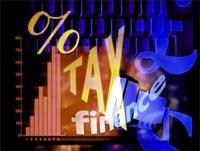|
|
| Help | |
| You are here: Rediff Home » India » Business » Business Headline » Report |
|
| ||||||||||||||||||||||||||||||||||||||||||||
|
| ||||||||||||||||||||||||||||||||||||||||||||
Last Updated: November 10, 2005 09:37 IST
There seems to be a fair amount of confusion about dividend distribution tax.
Investors in mutual funds keep asking why dividends are said to be tax free when there is actually a dividend distribution tax.
 The distribution is taxed
The distribution is taxed
Do note: the Income Tax department has not called it a dividend tax, but a dividend distribution tax.
The dividend distribution tax is to be paid to the Income Tax authorities by the entity declaring the dividend. In this case, the entity is the mutual fund.
The confusion
The reason for this confusion stems from the fact that the rules related to the taxation of dividends kept changing from time to time.
Earlier, there was no dividend distribution tax charged from the mutual fund declaring the dividend. The person receiving it (the investor), however, had to pay a tax.
Now, the one declaring the dividend (in this case, the mutual fund) has to pay a dividend distribution tax while the investor does not pay any tax.
So, if you have invested in mutual funds, the dividends are tax-free in your hands.
Who pays the dividend distribution tax?
The mutual fund has to pay the tax.
Funds are broken up into three broad categories:
- Equity funds (funds that invest in the shares of companies)
- Balanced funds (funds that invest in shares as well as fixed income instruments)
- Debt funds (funds that invest in fixed-income instruments like bonds).
An equity fund does not have to pay dividend distribution tax. Neither does a balanced fund that has more than 50% of its total investment in equity. But a debt fund, or a balanced fund that invests more than 50% of its total investments in debt, has to pay the tax.
Does this pinch the investor?
Yes. The investor may not have to pay the tax, but it affects him as the burden ultimately falls upon him.
The mutual fund will look at the profits made and decide how much of a dividend to declare. From this amount, it will set aside the amount required to be paid as dividend distribution tax. The balance will be paid as net dividend to the investors. Therefore, this tax amount is indirectly paid by the investors who end up getting lesser dividend than they would have if there was no tax.
Depending on its investors, the mutual fund company will have to pay a separate tax. The dividend distribution tax is 13.07% for individual mutual fund investors and 20.91% for corporate mutual fund investors.
This tax is directly paid by the mutual fund to the government before making the dividend payout.
What about the STT?
The Securities Transaction Tax is different.
This tax is paid by the investor on selling the units of an equity or balanced mutual fund that has more than 50% of its investment in equity.
So, when you sell your mutual fund units, you will have to pay the tax that is 0.1% of the total amount you make on the sale.
Capital gains
For equity funds and balanced funds that have invested more than 50% of their total investment in equity, you pay no tax if you sell the units a year after buying them. But, if you sell your units within a year of buying them, you pay 10% short-term capital gains tax.
Let's say you have bought units of a debt fund or a balanced fund that invests more than 50% of its portfolio (total investment) in debt.
If you sell it within a year, the profit is added to your total income and you are taxed according to your income tax slab at the normal tax rates.
If you sell after a year, you pay either 20% with indexation or 10% without indexation. Indexation is the process by which inflation is taken into account to enable you to pay less tax.
|
|
| © 2008 Rediff.com India Limited. All Rights Reserved. Disclaimer | Feedback |